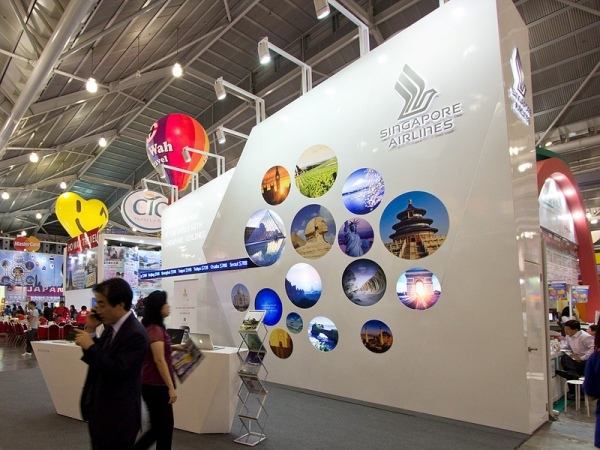Asian Brands on the World's Stage
Brand-expert Martin Roll talks global Asian brands.

On June 27, Asia Society Northern California will host Asian brand strategist Martin Roll for a program entitled Asian Brands 2.0: The Next Wave of Global Asian Brands. Martin Roll is a world-renowned thought-leader on value creation through brand equity driven by global experience and insights, the author of the bestselling book Asian Brand Strategy, and a weekly columnist for Forbes and others.
In advance of the event, we asked Mr. Roll several questions about emerging Asian brands in this short interview.
How did you initially become interested in Asia and Asian brands?
My first encounter with Asia runs back to September 1992 when I flew into Tokyo Narita Airport in the early morning. The sun was shining brightly at Mount Fuji. It was a classic and picturesque scene taken from a leisure travel guide. I was in Asia for the first time with an open mind-set and eager to learn about and absorb the region. I brought many profound impressions from that early trip and one of them was the almost total lack of Asian brands except the Japanese ones. What made a great impression on me that early morning in Japan was the start of a journey which has lasted since 1992.
What are the benefits of branding and brands?
Branding enhances shareholder value, it can become a catalyst for better leadership, it helps drive a share vision throughout the organization, and it can help to balance short- and long-term perspectives and performance.
If you had to pick one, what Asian brand has been the most successful at global branding and why?
Singapore Airlines is one of the most iconic Asian brands. A textbook example of how the brand promise and brand delivery has been well-balanced and managed since its inauguration in 1972. The brand promise of "A Great Way to Fly" with its emphasis on service and technology excellence has long served the airline very well and has been consistently communicated since the airline was founded in 1972. Any global airline CEO likes to learn and replicate the excellent way Singapore Airlines runs operations and brand management - it is in a class by itself.
How is branding for the global market different from home-country branding?
The toolbox for successful branding remains the same, regardless of the objectives, industries and markets. It is generally easier to gain acceptance at home and build reputation whereas global branding becomes a large challenge for many firms and their management teams due to the complexity of leadership, strategy and organizational set-up. Many brands underestimate what it really takes to become global. It is often a question of acquiring the right mind-set.
Do you think the stigma associated with "Made in China" products - as with "Made in Japan" in the 1950s and 1960s - is affecting the globalization of Asian brands? What did Japanese firms do to overcome this stigma? Can Chinese brands do the same?
"Made in China" seems to carry a relatively negative connotation, but it is an isolated case which hurts Chinese firms and their potential to build and sustain global brands. The Japanese firms embraced the journey 40 years back by elevating branding to the boardroom level and not at the tactical level most often found in Asia. Korea is currently doing the same. Chinese firms can definitely build global brands, but it requires a new mind-set among Chinese business leaders. They need to move from a volume obsessed manufacturing paradigm towards a customer-value driven purpose. China is bound to challenge this current state and alter its country-of-origin effect in a very positive direction over the next 10 to 15 years.
Who would you name as the top 5 notable brands emerging from Asia?
Samsung: Dedicated efforts to become a global iconic brand
Charles & Keith: Rising Singapore-based shoe brand with a distinct profile
Jim Thompson: Legendary iconic lifestyle brand from Thailand
Huawei: A brand which, against all odds, is proving China can build strong global brands
AmorePacific: Rapidly evolving Korean cosmetics company with distinct brands
More Information & Further Reading
Details and tickets for our event Asian Brands 2.0: The Next Wave of Global Asian Brands
Martin Roll's website
Martin Roll's most recent book, Asian Brand Strategy
Follow Martin Roll on Twitter: @martinroll